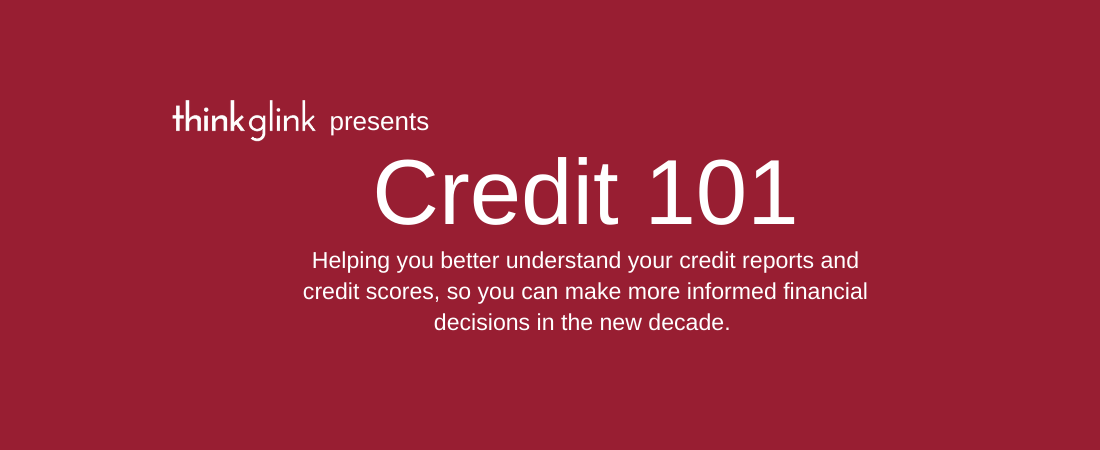As we move into 2020, credit continues to be a buzzword for consumers, but many people are unsure what part credit plays in their personal finances. In a new 5-part series, Credit 101, Ilyce Glink, an award-winning personal finance columnist and CEO of the financial wellness platform Best Money Moves, details important information you need to know about your credit reports and scores. The series is sponsored by Equifax.
Ilyce recently joined Ji Suk Yi, host of WGN’s Wintrust Business Lunch to discuss the importance of the new series. Listen here and continue reading for a transcript of their conversation. And be sure to read the first article in our series, here.
Ji Suk Yi [0:00]
Ji here with The Wintrust Business Lunch. Joining us now is real estate and money expert, Ilyce Glink, CEO of Best Money Moves. Hi, Ilyce.
Ilyce Glink [0:09]
Hey, how are you Ji?
Ji Suk Yi [0:10]
Fantastic! So glad to have you here on this Monday and you’ve provided me some motivation — we’re going to talk about this in a second — I did not buy a latte today because I read your stats on how much people spend on lattes and take out, another one of my vices throughout the year.
Ilyce Glink [0:28]
Well, I’m sorry to have to distress you on a Monday morning in January. But you know, all of those bills are coming in from the holidays. We talked about this over the last couple of weeks. And I want everybody to be focused on their credit and on getting those bills paid off.
Ji Suk Yi [0:44]
Well, you’re launching a new credit series on your website and you’re starting with credit 101, Why were you motivated to do this?
Ilyce Glink [0:52]
Well, you know, in partnership with Equifax this is really the right time of year for everybody to be taking stock of what they want to do financially over the course of the year and how they’re going to get there. And there’s so much misinformation about credit and credit scores that are out there that I really felt like, now would be a great time to give everyone a primer on what credit really means and how to use it to the best of your ability in your day to day life.
Ji Suk Yi [1:17]
You say that you’re giving insight, especially on how your report translates into your actual score.
Ilyce Glink [1:24]
Right. So it’s interesting, most people don’t realize all of the different component pieces that go into creating a credit score, right? It’s not just — and what doesn’t go in, right. So your payment history, like how well you’ve paid all of your debt, whether you’re on time every month, if you pay a little bit late, if you pay a lot later, or if you’ve never paid and everything has gone to collections, all of those pieces of information factor in. But there are other things that factor in too, like for example, how many different types of credit accounts that you have, how long you’ve had those credit accounts, how many inquiries you have on your credit score and any potentially negative information that you may have like from public records. All of that is important as well.
Ji Suk Yi [2:10]
And how these variables are rated, does that change from a credit agency to credit agency?
Ilyce Glink [2:16]
Well, first of all, you have more than one credit score. So we hear it we hear credit score is if there’s just one magic number, but in fact, there are multiple credit scores that are generated from multiple different credit files, that each of the three credit reporting agencies maintains on you. So Equifax, Experian, and TransUnion each maintain their own separate file, credit file or credit record on you. That’s why it’s important to check each of them at least once a year to make sure that there are no inaccuracies or there’s no information that shouldn’t be in there. And to understand what is included because each one is slightly different. And then they each have their own unique number and algorithm and way to sort of quantify all of that information to come up with a proprietary credit score.
But even amongst the three companies, there’s also another company, VantageScore. VantageScore keeps a credit score on you. And several actually, and also FICO, Fair Isaac’s Corporation that invented the credit score many decades ago, they also keep their own proprietary score. And so the way that each of these is sort of concocted is slightly different, but generally the same.
Ji Suk Yi [3:29]
And last week, we were talking about how FICO is rolling out a new version of how they keep their credit score.
Ilyce Glink [3:37]
Right, and it’s going to be very interesting when they see this. So FICO announced the FICO10, there are some smaller numbers after that, but basically, what they’re doing is they’re going to take another deep dive into alternative credit data and how that credit data flows into your credit score. And what’s interesting about this is the sort of larger recognition that people who — there’s like 28 million people in this country that have what’s known as a thin file or no file — they don’t have enough credit data to give you a regular FICO credit score.
But a lot of these people feel locked out of the larger digital world. So they want to be able to buy a house, but they don’t have a credit score that works. And so there’s been a lot of focus on how do you qualify somebody who’s thin file, no file. And so a lot of these different alternative scores are popping up and now FICO is jumping on that bandwagon, as are the three credit reporting agencies. So things like how well you pay your rent and your WiFi bill, for example, your internet and cable bill, those things are all now going to start to count for you as you’re building credit.
Ji Suk Yi [4:48]
I’m guessing that’s going to help a lot of folks that are trying to build their credit.
Ilyce Glink [4:52]
Well, it’s interesting, it should help some and not help others. In fact, the number that I saw this morning, one of the estimates is 40 million people will see their credit scores go up, and 40 million people may see their credit scores go down. So it’s a little hard to know because it hasn’t been made public. But one thing to keep in mind is that it doesn’t happen automatically.
When FICO introduces a new credit model, a credit score model, all the other companies that use it, the creditors, credit card companies, mortgage companies, other kinds of companies that weigh your credit score, like insurance companies before maybe granting you credit or selling you a product, they all have to adopt the new credit score model and then they have to change all of their computers to take that in. And all of that takes a lot of time. So even though this got introduced this week, it may not actually impact you and your credit score for years to come.
Ji Suk Yi [5:48]
And the best way to check your score? I’m getting this from a listener.
Ilyce Glink [5:53]
Well, there are lots of different ways to check your different credit scores. So one thing you can do is you can go to annualcreditreport.com, you’ll get your credit report for free from each of the credit reporting agencies once a year, you can buy your score through there. You can also go to myEquifax.com and get your free Equifax score there. You can go to myFico and you can buy a score there. So there’s a lot of different places to go. And then your bank may also give you their proprietary version of your credit score. And so you may want to check online. I know Discover card does this and several other banks do as well.
Ji Suk Yi [6:32]
Time flies when we’re talking with real estate and money expert, Ilyce Glink, her website’s thinkglink.com, but Ilyce really quickly, how much are we spending on average on lattes?
Ilyce Glink [6:44]
Well, I hate to say it, but typically people are spending between 1,500 dollars a year and $2,500 a year.
Ji Suk Yi [6:53]
Ouch. And you’re saying that’s better money spent on investments or saving?
Ilyce Glink [6:58]
Oh my goodness, pay down your debt and then save for the future. If you really like good coffee, go as far as to invest in a really good coffee maker. Buy some beans, grind it up and take it with you in the morning. You’ll be saving cups, you’ll be saving money. Plus you don’t have to wait to actually get to the coffee store to have your first round.
Ji Suk Yi [7:18]
Well, thanks so much Ilyce looking forward to more on this credit series. I really appreciate you talking with us.
Ilyce Glink [7:24]
You bet Ji, thank you.
You can create a myEquifax account (at www.myEquifax.com) to receive six free Equifax credit reports every 12 months. Read more in our Credit 101 series:
Credit 101: What’s in Your Credit Reports?








Leave A Comment